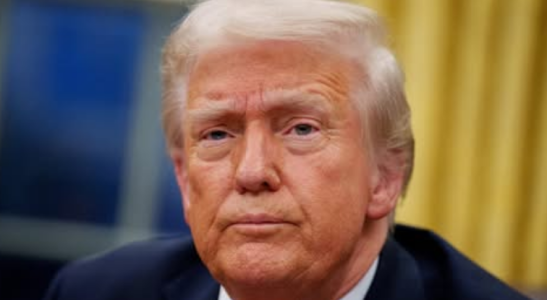Trump's crackdown sparks funding crisis for Aussie education
By
- Replies 28
Changes in international policy are set to impact research funding at several Australian universities, sparking concern within the academic community.
Multiple institutions are expected to face reductions in financial support following shifts in funding priorities.
The adjustments come amid broader discussions on the future of research investment and institutional initiatives.
Seven top Australian universities are facing significant research funding cuts due to policy changes by the Trump administration.
The Department of Education confirmed that Australian National University, University of Technology Sydney, University of NSW, Monash University, Macquarie University, Darwin University, and the University of Western Australia will lose funding as part of the President's crackdown on DEI (diversity, equality, and inclusion) programs.
This decision is part of the Trump administration's broader trend of funding cuts across the global university sector, which has raised concerns about the potential impact on international research collaborations.
Education Minister Jason Clare has acknowledged the situation, stating that 'the US will fund the research it wants to fund.'
Still, he also emphasised the department's commitment to advocating for the benefits of US-Australia research partnerships.
The financial implications are severe, with estimates suggesting that the cuts could total up to $600 million across the affected universities.
According to data obtained by AFR Weekend, the most significant losses are expected in the fields of biomedical and clinical sciences.
This could represent a major setback for research in these critical areas, which often rely on international funding for advancement.
The situation escalated last week when funding was paused after the Trump administration issued a 36-point questionnaire to Australian academics involved in joint-US research.
The questionnaire sought to determine how their projects align with the administration's domestic and foreign policy objectives, sparking fears of foreign interference and the imposition of political agendas on academic research.
In a memo sent to an Australian university project and published by Guardian Australia, the US government cited its desire to avoid 'DEI, woke gender ideology, and the new green deal' as the rationale behind its decision to 'temporarily pause' funding.
This stance has alarmed many in the academic community who view such research areas as vital to social progress and innovation.
The Australian National University (ANU) has been the first affected institution to acknowledge the funding cut publicly.
'We have had the first termination of funding from the United States,' Vice Chancellor Genevieve Bell informed staff.
Bell reassured the university community, stating, 'We are committed to supporting our researchers and the work we do here, in all the ways we can.'
According to the Australian Academy of Science, the US is Australia's largest research partner, having contributed $386 million to Australian research organisations in 2024 alone.
The Academy is now urging the Australian government to engage with the US to mitigate the risks posed by these funding cuts.
Education Minister Clare highlighted Australian universities' strong track record in research, noting that 'Australian universities punch above their weight in research.'
'International partners want to work with our universities because they are the best.'
This reputation for excellence is at risk if the funding cuts proceed as planned.
The uncertainty surrounding research funding is a cause for concern for students and academics at the affected universities.
The potential loss of resources could hinder ongoing projects and discourage future international collaborations, which are essential for tackling global challenges.
As the situation develops, the Australian academic community must stay informed and advocate for the importance of diverse and inclusive research.
The potential impact of these cuts extends beyond the universities themselves, potentially affecting the broader scientific community and society.
Credit: YouTube

What are your thoughts on the funding cuts to Australian universities? Have you or someone you know been affected by these changes? Share your experiences and opinions in the comments below.
Multiple institutions are expected to face reductions in financial support following shifts in funding priorities.
The adjustments come amid broader discussions on the future of research investment and institutional initiatives.
Seven top Australian universities are facing significant research funding cuts due to policy changes by the Trump administration.
The Department of Education confirmed that Australian National University, University of Technology Sydney, University of NSW, Monash University, Macquarie University, Darwin University, and the University of Western Australia will lose funding as part of the President's crackdown on DEI (diversity, equality, and inclusion) programs.
This decision is part of the Trump administration's broader trend of funding cuts across the global university sector, which has raised concerns about the potential impact on international research collaborations.
Education Minister Jason Clare has acknowledged the situation, stating that 'the US will fund the research it wants to fund.'
Still, he also emphasised the department's commitment to advocating for the benefits of US-Australia research partnerships.
The financial implications are severe, with estimates suggesting that the cuts could total up to $600 million across the affected universities.
According to data obtained by AFR Weekend, the most significant losses are expected in the fields of biomedical and clinical sciences.
This could represent a major setback for research in these critical areas, which often rely on international funding for advancement.
The situation escalated last week when funding was paused after the Trump administration issued a 36-point questionnaire to Australian academics involved in joint-US research.
The questionnaire sought to determine how their projects align with the administration's domestic and foreign policy objectives, sparking fears of foreign interference and the imposition of political agendas on academic research.
In a memo sent to an Australian university project and published by Guardian Australia, the US government cited its desire to avoid 'DEI, woke gender ideology, and the new green deal' as the rationale behind its decision to 'temporarily pause' funding.
This stance has alarmed many in the academic community who view such research areas as vital to social progress and innovation.
The Australian National University (ANU) has been the first affected institution to acknowledge the funding cut publicly.
'We have had the first termination of funding from the United States,' Vice Chancellor Genevieve Bell informed staff.
Bell reassured the university community, stating, 'We are committed to supporting our researchers and the work we do here, in all the ways we can.'
According to the Australian Academy of Science, the US is Australia's largest research partner, having contributed $386 million to Australian research organisations in 2024 alone.
The Academy is now urging the Australian government to engage with the US to mitigate the risks posed by these funding cuts.
Education Minister Clare highlighted Australian universities' strong track record in research, noting that 'Australian universities punch above their weight in research.'
'International partners want to work with our universities because they are the best.'
This reputation for excellence is at risk if the funding cuts proceed as planned.
The uncertainty surrounding research funding is a cause for concern for students and academics at the affected universities.
The potential loss of resources could hinder ongoing projects and discourage future international collaborations, which are essential for tackling global challenges.
As the situation develops, the Australian academic community must stay informed and advocate for the importance of diverse and inclusive research.
The potential impact of these cuts extends beyond the universities themselves, potentially affecting the broader scientific community and society.
Credit: YouTube
Key Takeaways
- Seven Australian universities are set to face significant cuts to research funding from the Trump administration, impacting a variety of projects.
- The US government's decision is linked to a ban on DEI projects, grants, and programs as part of broader cuts in the global university sector.
- The cuts could potentially result in a loss of up to $600 million, particularly affecting biomedical and clinical sciences research.
- The Australian government and educational institutions are voicing the importance of US-Australia collaborations and are looking for ways to mitigate the impact of these funding cuts.
Last edited by a moderator:








